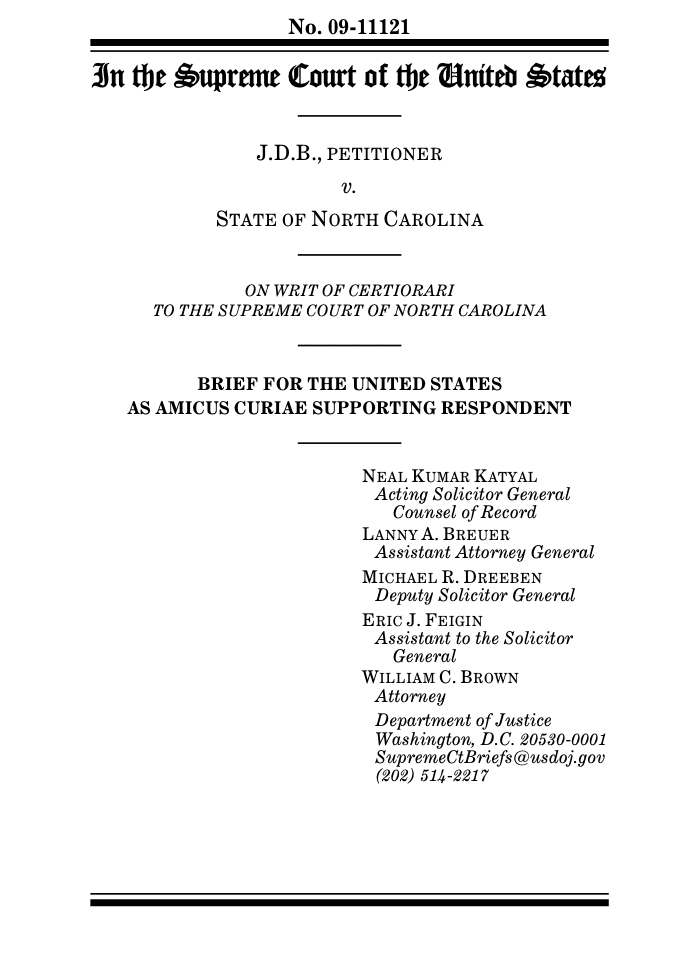
Summary of Argument
Petitioner’s sole claim in this Court is that “the Eighth Amendment requires the sentencing authority to make a finding that a juvenile is permanently incorrigible before imposing a sentence of life without parole.” Br. i. The Eighth Amendment imposes no such requirement.
This Court set forth the process that the Eighth Amendment requires in Miller v. Alabama, 567 U.S. 460 (2012), which “h[e]ld that mandatory life without parole for those under the age of 18 at the time of their crimes violates the Eighth Amendment[].” Id. at 465. In so holding, the Court explained that what renders a mandatory sentencing scheme unconstitutional is that it “mak[es] youth (and all that accompanies it) irrelevant to imposition” of a life-without-parole sentence. Id. at 479. Miller accordingly interpreted the Eighth Amendment to require “that a sentencer follow a certain process—considering an offender’s youth and attendant characteristics—before imposing a particular penalty.” Id. at 483. That is the process that the trial court followed here. After permitting petitioner to present “any evidence that he was entitled to parole eligibility under Miller,” Pet. App. 37a, the court “considered” petitioner’s youth and attendant characteristics and whether they “counsel[ed] against irrevocably sentencing [him] to life in prison,” J.A. 148-149.
Petitioner accordingly received the process that the Eighth Amendment, as interpreted by Miller, requires. “Miller did not require trial courts to make a finding of fact regarding a child’s incorrigibility.” Montgomery v. Louisiana, 136 S. Ct. 718, 735 (2016) (emphasis added). Instead, Miller used the terms “‘irreparable corruption’” and “‘transient immaturity’” only to describe the ultimate “judgment” that a sentencer reaches about what is “reflect[ed]” by a defendant’s “crime.” 567 U.S. at 479-480 (emphasis added; citations omitted). It did not use those terms to refer to some separate finding of fact. Where a sentencer decides that a life-without-parole sentence is appropriate, after “tak[ing] into account how children are different[] and how those differences counsel against irrevocably sentencing them to a lifetime in prison” as part of its evaluation of the circumstances of the crime, it has done all that Miller requires. Id. at 480. Whether the crime reflects “permanent incorrigibility,” as opposed to “transient immaturity,” is not an inquiry distinct from the judgment that such a discretionary sentence represents.
In any event, even if sentencers were required to treat “transient immaturity” as a distinct inquiry, petitioner would still not be entitled to relief. As this Court emphasized in Montgomery, the Eighth Amendment “leave[s] to the State[s] the task of developing appropriate ways to enforce the constitutional restriction upon [their] execution of sentences.” 136 S. Ct. at 735 (citation omitted; second and third sets of brackets in original). One way is to treat “transient immaturity” as a mitigating circumstance for the offender to prove. When a State adopts that approach, a sentencer need not make an affirmative finding of “permanent incorrigibility” before imposing a sentence of life without parole. Rather, it is enough to find, as the trial court did here, that the offender did not meet his burden of proof.